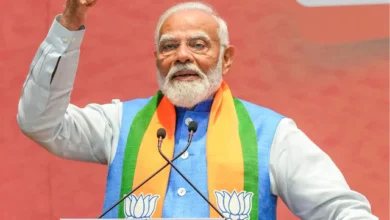On July 21, Sri Lankan President Wickremesinghe will visit India
According to authorities here, Sri Lankan President Ranil Wickremesinghe will go to India for two days starting on July 21. During that time, he is scheduled to meet with Prime Minister Narendra Modi.
This would be Wickremesinghe’s first trip to India since he was elected president of the impoverished nation last year after Gotabaya Rajapaksa was overthrown in a popular rebellion in July. Wickremesinghe was chosen to serve as president till September 2024, which is the remainder of Rajapaksa’s tenure.
According to a Saturday report in the Daily Mirror newspaper, India’s Foreign Secretary Vinay Mohan Kwatra would go to Sri Lanka early the next week to finalise plans for Wickremesinghe’s trip to New Delhi.
During his two-day visit to India, Wickremesinghe is anticipated to see Prime Minister Modi, according to authorities.
Before leaving for New Delhi, Wickremesinghe will complete the execution of a number of Indian projects pertaining to electricity and energy, agricultural, and marine challenges in the island country, according to officials.
According to the Mirror, President Wickremesinghe would go to India with Ministers of Fisheries Douglas Devananda, Power and Energy Kanchana Wijesekera, Foreign Affairs Ali Sabry, and Chief of the President’s Staff Sagala Ratnayake.
The anticipated trip to India by President Wickremesinghe will happen when Sri Lanka’s faltering economy exhibits “tentative signs of improvement.”
The economy of Sri Lanka is beginning to show tentative indications of revival, in part as a result of the adoption of crucial policy measures. But the economic recovery is still difficult. After his official visit to the indebted island country in June, International Monetary Fund Deputy Managing Director Kenji Okamura said that it was more important than ever to maintain the reform momentum under strong ownership by both the government and the Sri Lankan people.
To resuscitate the nation’s economy, Wickremesinghe has implemented difficult economic reforms.
The nation, which had its first loan default in mid-April of last year, received a $2.9 billion bailout from the IMF in March of this year, extending over 4 years, subject to reforms being implemented.







